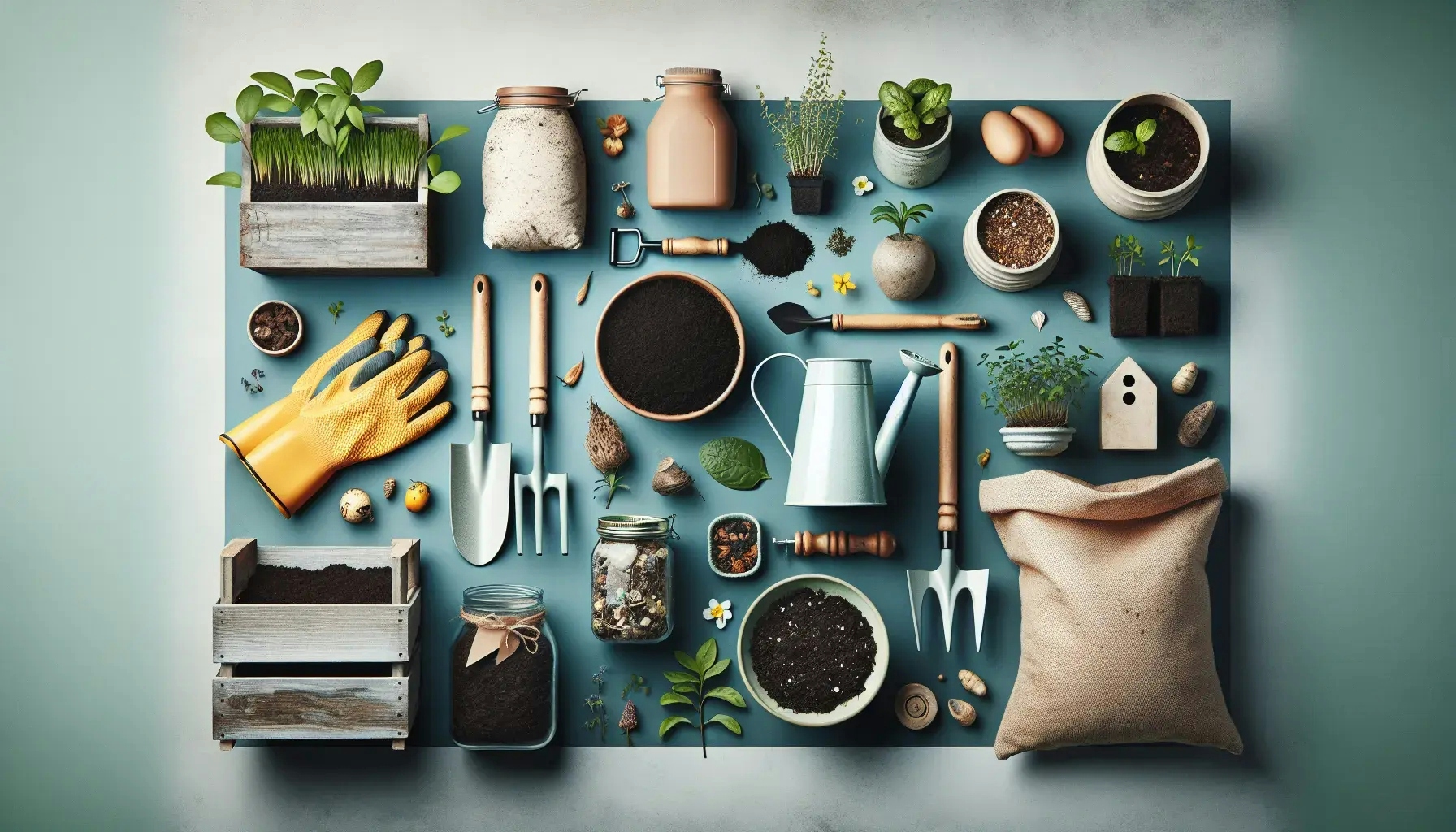Welcome to the world of organic gardening! This blog post will provide you with expert advice on organic gardening, helping you to cultivate a thriving, sustainable garden. We'll delve into the best practices, common challenges, and effective solutions to ensure your organic garden flourishes. Whether you're a seasoned gardener or a beginner, this guide will equip you with the knowledge you need to succeed in organic gardening.
Understanding Organic Gardening
Organic gardening is a method of gardening that relies on natural processes and materials. It involves the use of organic fertilizers and pest control methods, and it emphasizes soil health and biodiversity. Organic gardening is not just about avoiding synthetic fertilizers and pesticides; it's a holistic approach that considers the health of the entire ecosystem.
To succeed in organic gardening, you need to understand the basics of soil health. Soil is the foundation of your garden, and healthy soil leads to healthy plants. Organic matter, such as compost and well-rotted manure, is crucial for improving soil fertility and structure. It provides essential nutrients for plants and promotes the growth of beneficial soil organisms.
Another key aspect of organic gardening is pest control. Instead of using synthetic pesticides, organic gardeners rely on natural methods to manage pests. These methods include encouraging beneficial insects, using barriers and traps, and practicing crop rotation.
Expert Tips for Soil Preparation
Soil preparation is a critical step in organic gardening. It involves improving the soil's physical properties and nutrient content to promote plant growth. Here are some expert tips for soil preparation in organic gardening.
Start by testing your soil. A soil test will reveal the pH level and nutrient content of your soil, helping you to determine what amendments are needed. For instance, if your soil is acidic, you might need to add lime to raise the pH. If it's lacking in certain nutrients, you can add organic matter to replenish them.
Next, add organic matter to your soil. Organic matter, such as compost, well-rotted manure, and leaf mold, improves soil fertility and structure. It provides essential nutrients for plants and promotes the growth of beneficial soil organisms.
Lastly, practice crop rotation. Crop rotation is a method of growing different types of crops in the same area in sequential seasons. It helps to prevent soil depletion and break pest and disease cycles.
Natural Pest Control Strategies
Pest control is a common challenge in organic gardening. However, with the right strategies, you can manage pests effectively without resorting to synthetic pesticides. Here are some natural pest control strategies recommended by experts.
Encourage beneficial insects. Many insects, such as ladybugs, spiders, and parasitic wasps, are natural predators of garden pests. You can attract these beneficial insects by planting a variety of plants, providing habitats, and avoiding the use of harmful pesticides.
Use barriers and traps. Barriers, such as row covers and copper tape, can prevent pests from reaching your plants. Traps, such as yellow sticky traps and beer traps, can catch and kill pests.
Practice companion planting. Companion planting is a method of growing plants together for mutual benefit. Some plants can deter pests, attract beneficial insects, or improve soil health.
Organic Fertilizers and Their Application
Organic fertilizers are a key component of organic gardening. They provide essential nutrients for plants and improve soil health. Here are some types of organic fertilizers and tips for their application.
Compost is a rich source of nutrients and beneficial soil organisms. You can make compost at home using kitchen scraps, yard waste, and other organic materials. Apply compost to your garden in the spring and fall to replenish nutrients.
Manure is another excellent organic fertilizer. It's rich in nitrogen, which promotes leafy growth. However, it's important to use well-rotted manure, as fresh manure can burn plants and carry pathogens.
Bone meal and blood meal are organic fertilizers derived from animal by-products. Bone meal is high in phosphorus, which promotes root development and flowering. Blood meal is high in nitrogen, which promotes leafy growth.
Watering and Mulching Techniques
Proper watering and mulching are essential for the success of your organic garden. Here are some expert tips on these techniques.
Water your plants deeply and infrequently. This encourages deep root growth, making your plants more drought-tolerant. The best time to water is early in the morning, as this reduces evaporation.
Use mulch to conserve water, suppress weeds, and improve soil health. Organic mulches, such as straw, wood chips, and compost, also add nutrients to the soil as they decompose.
Harvesting and Storing Your Organic Produce
After all your hard work, it's time to enjoy the fruits of your labor. Here are some tips for harvesting and storing your organic produce.
Harvest your produce at the right time. Most vegetables taste best when they're young and tender. Fruits should be picked when they're fully ripe.
Store your produce properly to maintain its freshness and nutritional value. Most fruits and vegetables should be stored in a cool, dark place. Some, like tomatoes and bananas, should be kept at room temperature.
Embracing the Organic Gardening Journey
Organic gardening is a rewarding journey that benefits not only you but also the environment. By following these expert tips, you can cultivate a thriving, sustainable garden. Remember, organic gardening is not just about avoiding synthetic fertilizers and pesticides; it's about nurturing the health of the entire ecosystem. So, embrace the organic gardening journey and enjoy the fruits of your labor.

